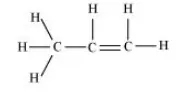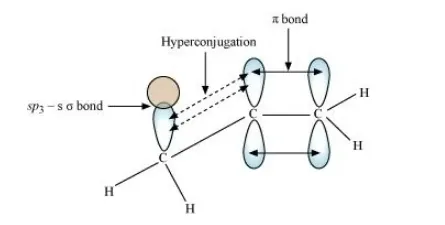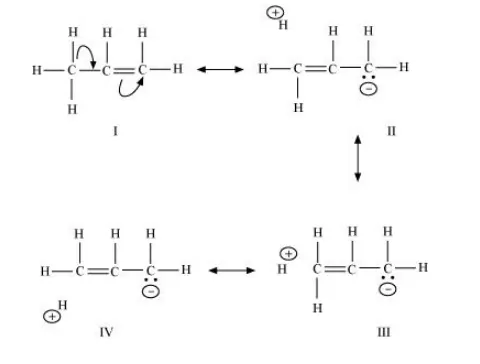Explain why alkyl groups act as electron donors when attached to a $\pi$ system.
When an alkyl group is attached to a $\pi$ system, it acts as an electron-donor group by the process of hyperconjugation. To understand this concept better, let us take the example of propene.

In hyperconjugation, the sigma electrons of the C–H bond of an alkyl group are delocalised. This group is directly attached to an atom of an unsaturated system. The delocalisation occurs because of a partial overlap of a sp3 –s sigma bond orbital with an empty p orbital of the π bond of an adjacent carbon atom.
The process of hyperconjugation in propene is shown as follows:

This type of overlap leads to a delocalisation (also known as no-bond resonance) of the π electrons, making the molecule more stable.

